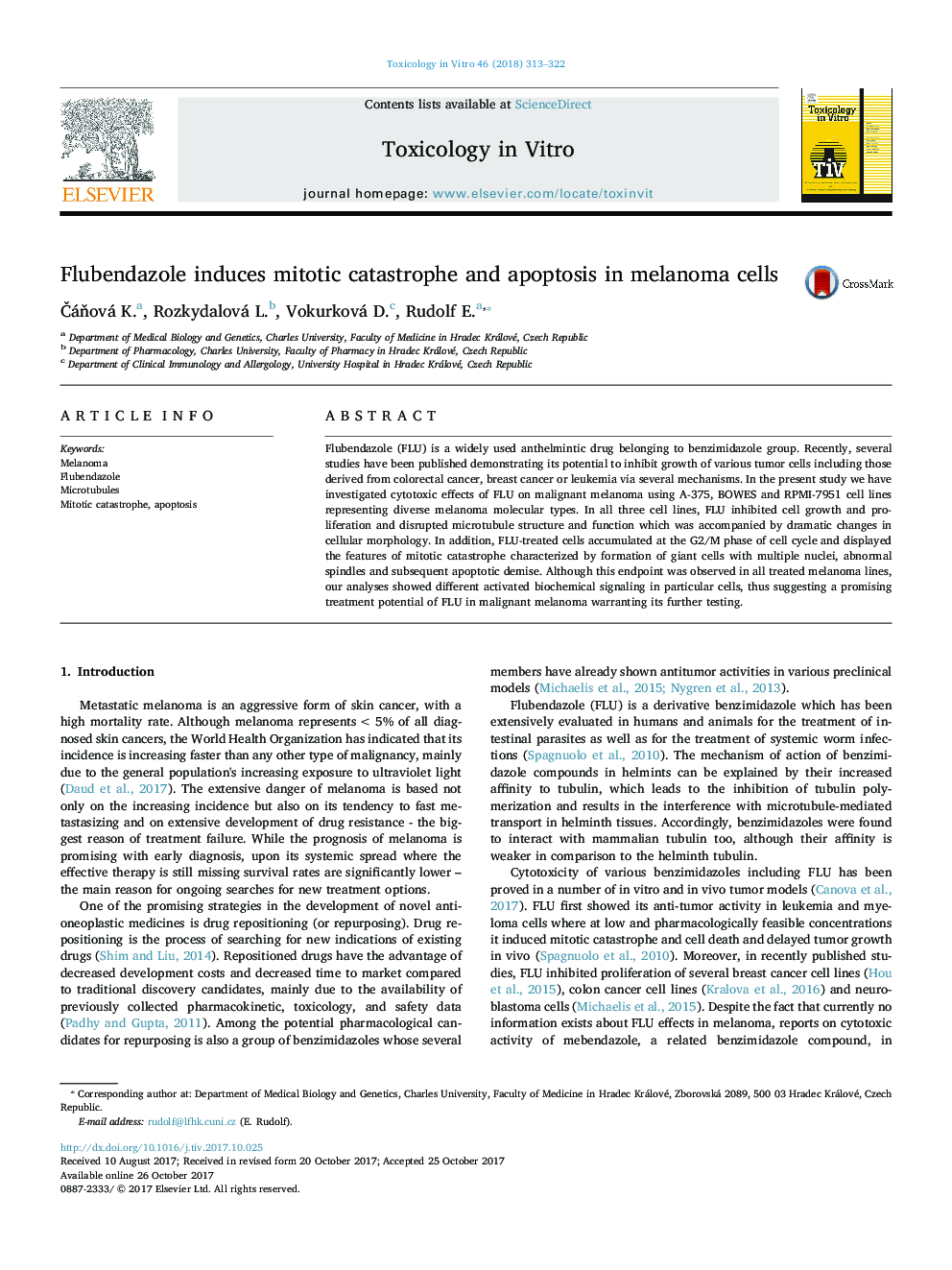| Article ID | Journal | Published Year | Pages | File Type |
|---|---|---|---|---|
| 8554131 | Toxicology in Vitro | 2018 | 10 Pages |
Abstract
Flubendazole (FLU) is a widely used anthelmintic drug belonging to benzimidazole group. Recently, several studies have been published demonstrating its potential to inhibit growth of various tumor cells including those derived from colorectal cancer, breast cancer or leukemia via several mechanisms. In the present study we have investigated cytotoxic effects of FLU on malignant melanoma using A-375, BOWES and RPMI-7951 cell lines representing diverse melanoma molecular types. In all three cell lines, FLU inhibited cell growth and proliferation and disrupted microtubule structure and function which was accompanied by dramatic changes in cellular morphology. In addition, FLU-treated cells accumulated at the G2/M phase of cell cycle and displayed the features of mitotic catastrophe characterized by formation of giant cells with multiple nuclei, abnormal spindles and subsequent apoptotic demise. Although this endpoint was observed in all treated melanoma lines, our analyses showed different activated biochemical signaling in particular cells, thus suggesting a promising treatment potential of FLU in malignant melanoma warranting its further testing.
Keywords
Related Topics
Life Sciences
Environmental Science
Health, Toxicology and Mutagenesis
Authors
ÄáÅová K., Rozkydalová L., Vokurková D., Rudolf E.,
